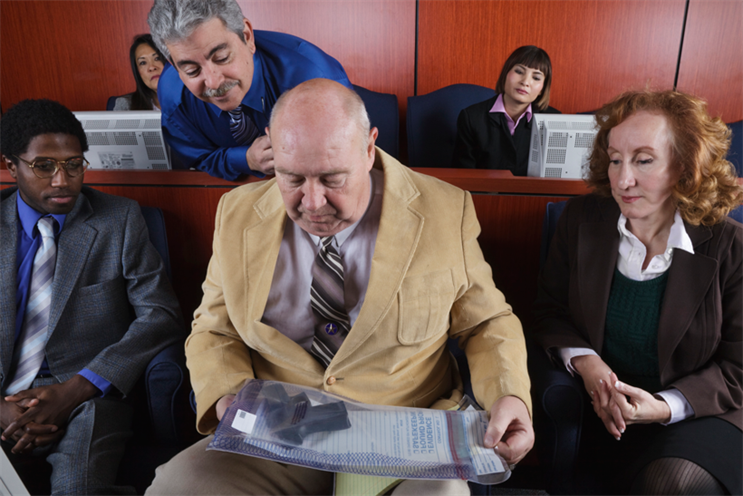I've been doing jury service for the past four weeks. Longer than I bargained for - it was a big, complex case.
I am legally bound not to reveal any details of opinions expressed or events in the jury room. If I did, I'd be sent to prison for contempt of court, so anyone hoping for an article packed with rich anecdotal detail will be disappointed.
But there's plenty here for the rest of you, because my 'deep-dive' exposure to the world of the British legal system has opened my eyes to many of the flaws in how we work in marketing. I know it sounds unlikely, but go with me - it's been fascinating.
1. Words matter
The world of the law, and legal deliberations in general, are almost entirely about the precise meaning of words. No word is loosely spoken, or written by the judge or barristers without its meaning being weighed. Our legal system is based on this, and it's amazing to see in action. In marketing we are loose with words and speak in generalities. This results in misunderstandings about what we're trying to do and many unintended consequences. Get more precise and remarkable things will happen.
2. Evidence beats opinion
The prosecution and defence cases are all about fact and evidence: conjecture is forbidden. The respect for what we know about a set of events is remarkable and powerful. Too many marketing conversations feature little evidence, and we usually don't search hard enough for what we really know about the business, consumers, product or service. When you can't say anything that isn't backed by evidence, things get really interesting.
3. Stories are stronger when they lace facts together
We're always banging on about storytelling, like we're Roald Dahl or someone, but the stories we tell should be more like those told in court. The prosecution and defence tell their stories, based on taking different inferences from the same agreed facts. The stories we tell in our packaging, ads or social posts should work more like this - grounded in the facts we know about our customers, products and services, rather than succumbing to the untethered, feelgood, wish-fulfillment nonsense we too often fall into.
4. Collective responsibility makes things work
The system is built to ensure that whatever comes out of the jury room cannot ever be the result of a few people's strong opinion. It's the collective view of 12. Marketing decisions should be more like that. How often have marketing ideas failed because a few people are trying to impose their will on an organisation? Or how often do people rush to blame others when things go wrong? The best marketing is about being like a jury - a wide group of people involved in making a decision, with no division once the decision is made.
5. Great things happen when your phone's turned off (and people are legally forbidden from disturbing you)
When a jury retires to deliberate, their phones are taken away and they are locked in the jury room. The usher swears an oath to not allow anyone to disturb them until they have reached a verdict. Not having your phone for a whole day is an interesting experience, as initial anxiety gives way to focus and concentration. Too many of our conversations in marketing never quite get resolved because we don't have this focus, too often allowing ourselves to submit to the temptation of checking emails when our mind drifts. Decisions take longer, ideas are worse. Be like a jury. Switch it off. Lock the door. Don't come out until you've solved the problem. You'll be amazed how well it works.
If you are summoned for jury service, I can't guarantee as engaging an experience as I had, but if you go in with an open and engaged mind, you will certainly learn from living in a different world for a few weeks.
Craig Mawdsley is joint chief strategy officer at AMV BBDO


